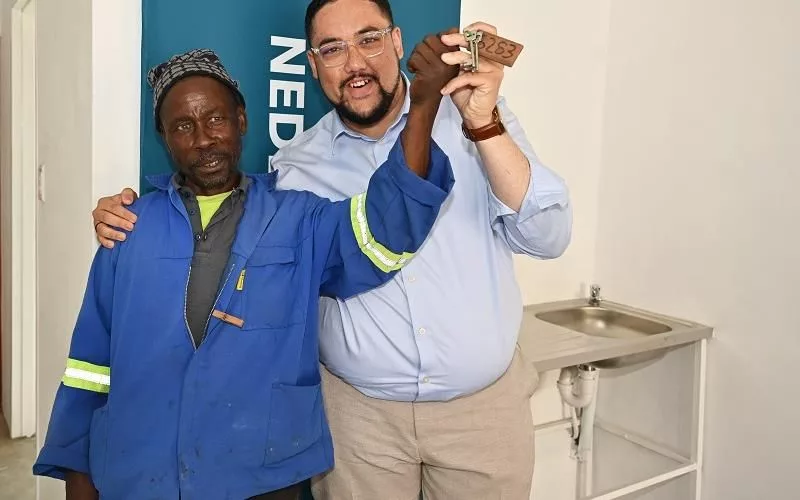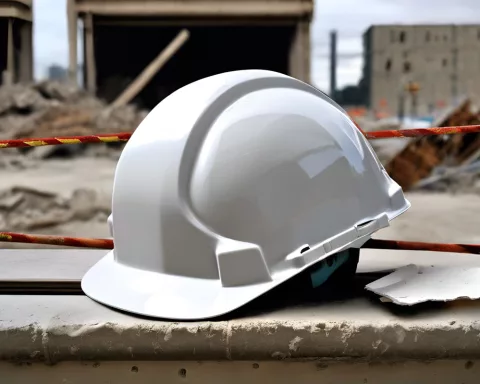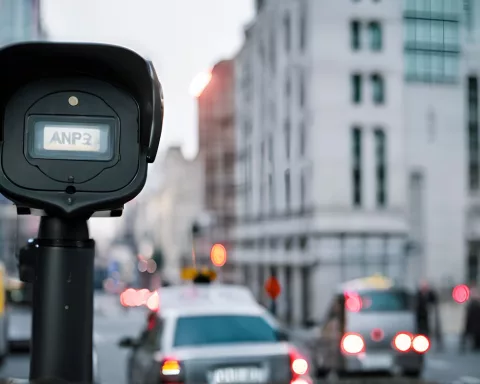The Dido Valley housing development project in Simon’s Town, South Africa, is an impressive undertaking that seeks to offer 600 new housing opportunities to those who were affected by apartheid policies. The project aims to reconstruct and restore a community torn apart by past injustices, and the first 10 Breaking New Ground homes were handed over to eligible beneficiaries in October 2023. The project is a powerful symbol of redress and restitution and is expected to be completed by June 2025.
What is the Dido Valley Development project?
The Dido Valley housing development project offers 600 new housing opportunities to beneficiaries from the Redhill informal settlement and Luyolo land claimants near Cape Town, South Africa. This project symbolizes a crucial step in reconstructing and restoring a community that was tragically torn apart by apartheid policies. The project is expected to be completed by June 2025 and stands as a powerful symbol of redress and restitution.
A Milestone in Rebuilding a Community
Simon’s Town, a scenic coastal village near Cape Town, South Africa, is experiencing a significant change as a result of the R170 million Dido Valley housing development project. This impressive undertaking seeks to offer 600 new housing opportunities to beneficiaries from the Redhill informal settlement and Luyolo land claimants. The project symbolizes a crucial step in reconstructing and restoring a community that was tragically torn apart by apartheid policies.
On October 25, 2023, Councillor Carl Pophaim of the Human Settlements Mayoral Committee, along with other officials, presented the first 10 Breaking New Ground (BNG) Dido Valley homes to eligible beneficiaries. The ongoing project consists of 500 BNG homes designated for the Redhill community and another 100 homes for Luyolo land claimants.
The handover ceremony not only represented the empowerment of beneficiaries becoming first-time homeowners but also commemorated the reunification of a community marred by a distressing past. Councillor Pophaim expressed his enthusiasm during the handover, declaring, “This is a tangible example of redress and restitution in action and our commitment to creating a better future for those who suffered the effects of apartheid policies.” He also recognized the hard work of the City teams and project steering committees in advancing the project.
Strategic Location and Beneficiary Selection
The Dido Valley project is strategically situated to provide affordable housing to some of the most disadvantaged residents in the metro area. The majority of beneficiaries for the BNG portion of the project come from Redhill, an informal settlement situated between Simon’s Town and Scarborough. The remaining recipients, the Luyolo land claimant beneficiaries, were forcibly removed from Simon’s Town in the mid-1960s under the apartheid Group Areas Act and subsequently relocated to Gugulethu. The project is supported by a combined organization that represents both beneficiary groups from Redhill and Luyolo.
The process of selecting beneficiaries adheres to the City’s Housing Allocation Policy and Housing Needs Register, ensuring a fair and transparent allocation of housing opportunities. This system prevents queue jumping and caters to those who are eligible for housing according to South African legislation. Crucially, the City’s political office bearers do not have access to or influence over the Register and its qualifying beneficiaries.
Anticipated Completion and Resident Responsibilities
As the Dido Valley development progresses steadily, it is expected to be completed by June 2025, assuming everything goes as planned. As the Luyolo land claimants receive their new homes, the project is taking significant steps towards healing the rifts within a divided community.
Nonetheless, the project’s success relies on the collective watchfulness of the residents themselves. The City encourages anonymous tip-offs regarding illegal activities such as vandalism or attempted unlawful occupation. Residents can report these incidents by dialing 112 from a cell phone (toll-free) and 107 from a landline or 021 480 7700 for emergencies.
A Symbol of Redress and Restitution
The Dido Valley housing development stands as a powerful symbol of redress and restitution. As homeownership is transferred to deserving beneficiaries, we observe the revitalization of a community and the repair of historical rifts. In this project, each brick contributes to constructing a brighter and more inclusive future for those who have endured the repercussions of apartheid policies.
How many housing opportunities does the Dido Valley Development project offer?
The Dido Valley Development project offers 600 new housing opportunities to beneficiaries from the Redhill informal settlement and Luyolo land claimants near Cape Town, South Africa.
Who are the beneficiaries of the Dido Valley Development project?
The beneficiaries of the Dido Valley Development project are those who were affected by apartheid policies, specifically from the Redhill informal settlement and Luyolo land claimants near Cape Town, South Africa.
When was the first handover ceremony of the Dido Valley Development project held?
The first handover ceremony of the Dido Valley Development project was held on October 25, 2023.
How many Breaking New Ground (BNG) homes are designated for the Redhill community and Luyolo land claimants?
The Dido Valley Development project consists of 500 BNG homes designated for the Redhill community and another 100 homes for Luyolo land claimants.
How are beneficiaries selected for the Dido Valley Development project?
Beneficiaries are selected for the Dido Valley Development project according to the City’s Housing Allocation Policy and Housing Needs Register, ensuring a fair and transparent allocation of housing opportunities.
When is the Dido Valley Development project expected to be completed?
The Dido Valley Development project is expected to be completed by June 2025.
How can residents report illegal activities in the Dido Valley Development project?
Residents can report illegal activities such as vandalism or attempted unlawful occupation by dialing 112 from a cell phone (toll-free) and 107 from a landline or 021 480 7700 for emergencies.
What does the Dido Valley Development project symbolize?
The Dido Valley Development project stands as a powerful symbol of redress and restitution, contributing to constructing a brighter and more inclusive future for those who have endured the repercussions of apartheid policies.








